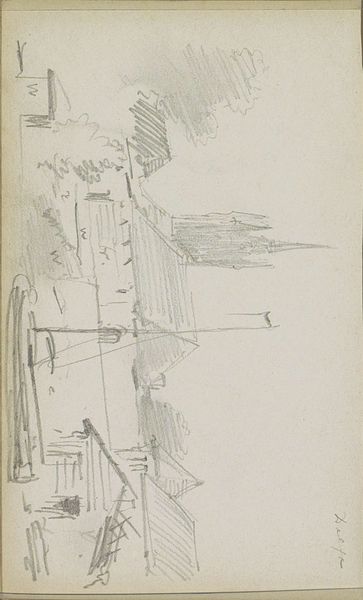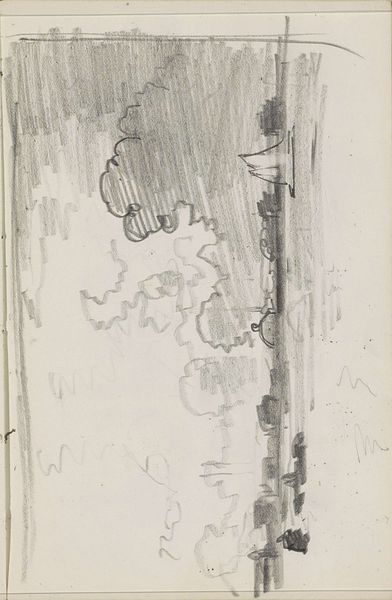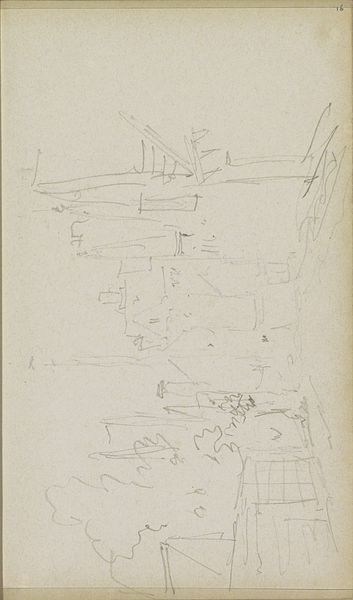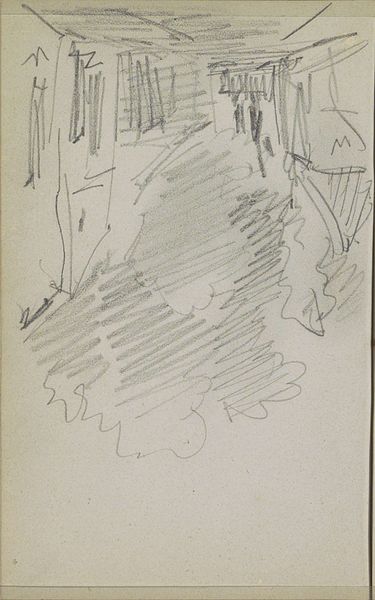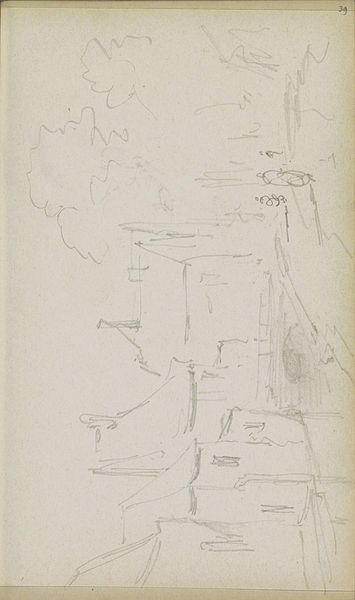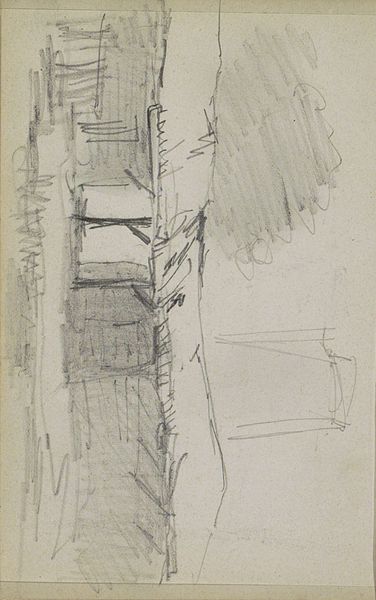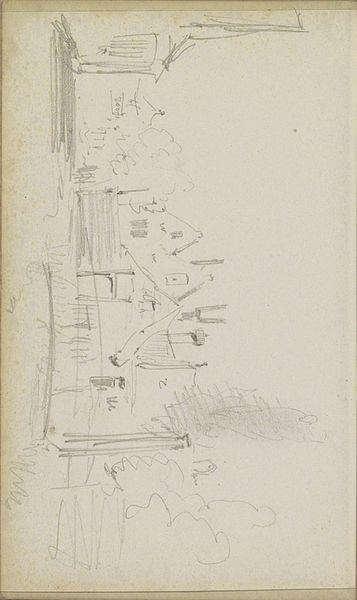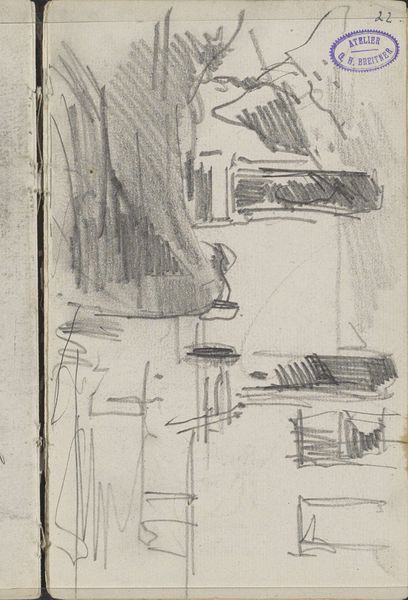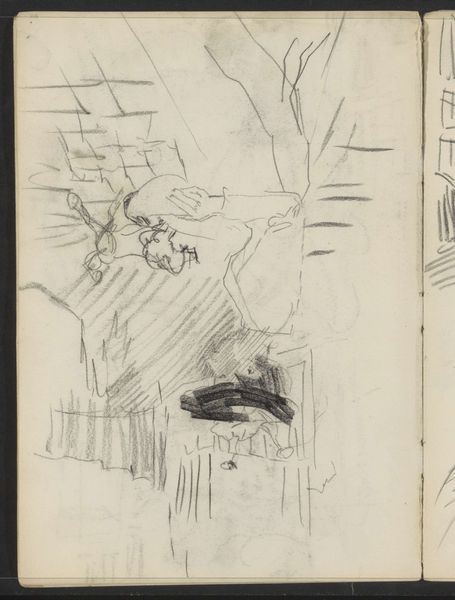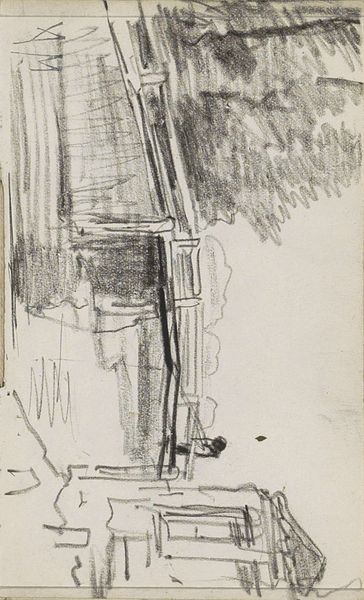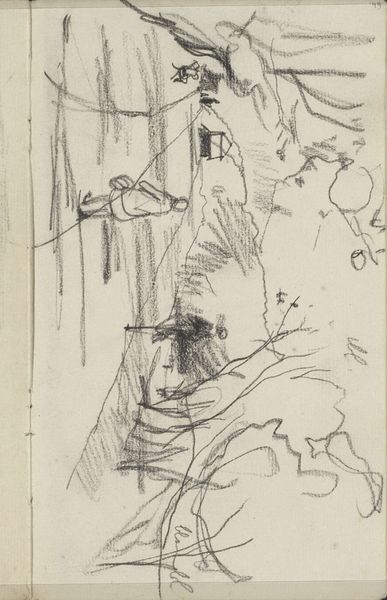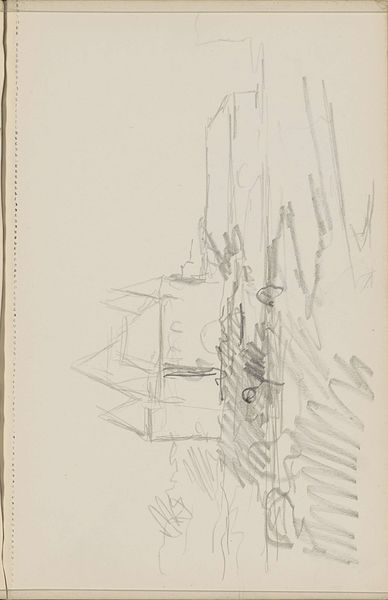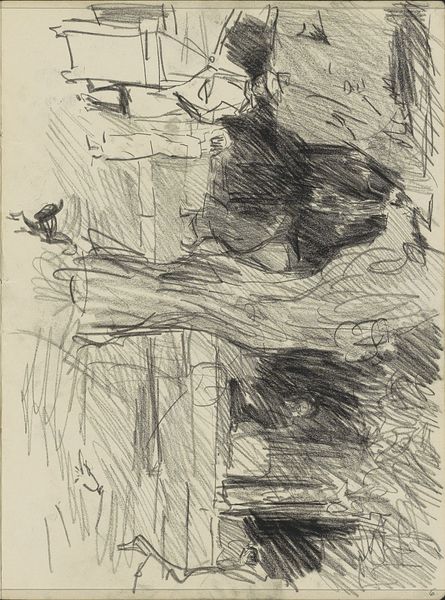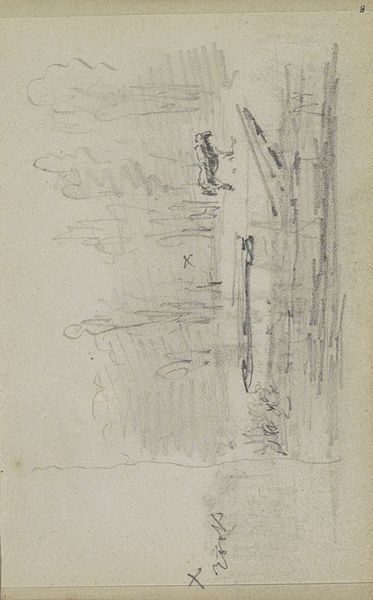
drawing, paper, pencil
#
drawing
#
amateur sketch
#
light pencil work
#
pencil sketch
#
incomplete sketchy
#
landscape
#
paper
#
personal sketchbook
#
sketchwork
#
ink drawing experimentation
#
geometric
#
detailed observational sketch
#
pencil
#
sketchbook drawing
#
sketchbook art
Copyright: Rijks Museum: Open Domain
Editor: This is "Figuur voor een gebouw," or "Figure for a Building," a pencil and paper drawing by Adrianus Eversen, dating somewhere between 1828 and 1897. It feels like a fleeting idea, almost as if we're peering into the artist's sketchbook. What aspects of this drawing stand out to you? Curator: Immediately, the spatial relationships established by the varying densities of line. Observe how Eversen articulates depth through a contrast between the firm, more deliberate strokes defining the architectural elements, against the fainter, more suggestive rendering of the surrounding foliage. The composition emphasizes the tension between structured form and organic sprawl. Do you find the artist has resolved this contrast, or has he embraced the inherent discord? Editor: I think it's intentionally unresolved, a study in contrasts, perhaps. What can we learn from the artist’s choice to leave it so open? Curator: It invites a decoding of the visual language deployed. Consider the implications of line quality. Thin, tentative strokes depict ephemeral elements. Heavier lines solidify geometric shapes. Eversen juxtaposes implied volumes and planes with mere suggestions of mass. In doing so, what message emerges about his relationship with form? How does the absence of closure contribute to the piece’s aesthetic value? Editor: So it’s less about representing a specific place, and more about the act of seeing and representing itself. The geometric versus the organic, the finished versus unfinished… It really makes you think about what constitutes a complete image. Curator: Precisely. This prompts questions about intention and execution and, perhaps more profoundly, what it means to represent the world. A worthwhile inquiry, wouldn't you agree?
Comments
No comments
Be the first to comment and join the conversation on the ultimate creative platform.
